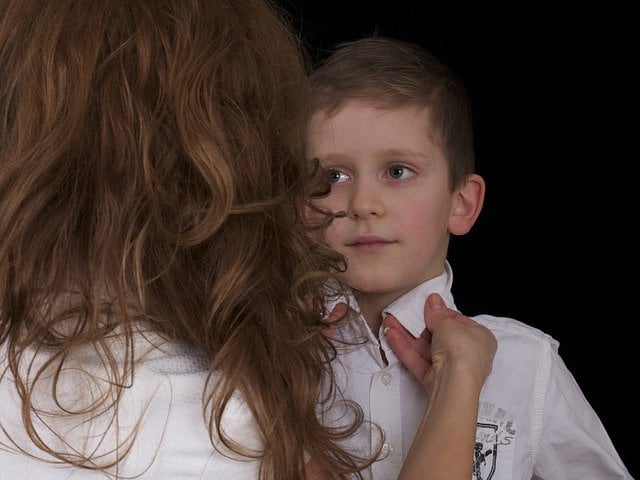Many parents may not be aware that they are inadvertently teaching children bad lessons. In today’s fast-paced world, many children exhibit challenging behaviour, often acting without heeding their parents’ guidance. Some parents may simplify matters by not adequately helping their children distinguish right from wrong. However, it’s crucial to recognize that the lessons children absorb during their formative years can profoundly impact their future. So, how can we, as parents and caregivers, navigate this delicate balance and avoid unintentionally imparting negative lessons to our children? In this discussion, we’ll explore effective strategies for steering our children away from detrimental influences and toward a path of positive growth and development.
Why and how to avoid teaching children bad lessons?
Many parents grapple with the concern of how to raise successful children. In pursuit of this goal, they often impose numerous restrictions and inadvertently impart negative lessons. Unfortunately, such teaching methods and restrictions can steer children in the wrong direction, ultimately impacting their mental well-being and self-confidence. It is crucial for parents and elders to steer clear of imparting detrimental lessons to the younger generation.
1. Avoid unnecessary comments

When a child is feeling sad and cries for any reason, it’s a crucial moment for parents, grandparents, and other adults to respond thoughtfully. Unfortunately, some adults may react with unhelpful comments, both at home and in other settings like school.
Common negative comments often heard include phrases like, “Are you a baby to cry?” or placing blame on the child for their sadness.
Children are highly impressionable and tend to learn from the behaviours and words of the adults around them. Consequently, when they encounter friends experiencing sadness, they may mimic these negative comments, as they’ve learned them from the adults in their lives.
Instead of using hurtful language, adults have an opportunity to help children understand that sadness and crying are natural human emotions, not exclusive to babies. It’s essential to convey that crying can be beneficial as it relieves mental stress, acting as a means for the body to release emotional burdens from the mind and heart.
When dealing with a child who isn’t receptive to parental guidance or makes mistakes, reacting with shouting and punishment is not the most effective approach. Such actions can potentially hurt their innocent minds and give rise to feelings of parental neglect. Instead, a more constructive approach involves helping the child comprehend their mistake with love and care, fostering a nurturing and understanding environment.
Do you know how to touch the heart of your child?
2. Do not make a perfectionist

Some parents have a strong desire for their children to excel in every aspect of life. They may frequently highlight even minor errors and request that their children strive for perfection.
However, it’s essential for parents to refrain from constantly pressuring their children to achieve perfection. Instead, parents should emphasize the importance of understanding that making mistakes is a natural part of life and something that can happen to anyone. Without this understanding, children may develop perfectionist tendencies, which can be detrimental to their well-being and personal growth.
3. Make children responsible

Teaching children age-appropriate household chores is an important way to instil responsibility and life skills. However, it’s crucial not to treat them as servants or impose tasks on them forcefully. Instead, parents should approach this with love and consideration, fostering a positive environment.
Expressing appreciation for their efforts is key, as it triggers the release of dopamine, a hormone associated with happiness. By acknowledging and appreciating their contributions, parents can create a healthy and nurturing atmosphere that encourages children to take on responsibilities willingly and find joy in contributing to the family’s well-being.
Teaching Children Bad Lessons – 8 Lessons You Should Avoid
Please take a moment to view the video below, which discusses eight common mistakes that parents unknowingly make in raising their children. Additionally, you’ll find valuable suggestions for fostering mental strength, confidence, and self-sufficiency in your kids to help them grow into capable and resilient adults.
What will you find in the video?
- Snitching is wrong.
- Children shouldn’t express their negative emotions.
- You should try to make people like you.
- Get good grades or you’ll never get a good job.
- “Always the best for my baby!”
- Making a mistake means losing something.
- Children should never be idle.
- Children must always share their toys.
What to teach children?

Teach and empower your children to openly communicate with adults about any unfair or challenging situations they encounter. Encourage children to fearlessly share their concerns with the family. Even if some issues may seem minor from an adult perspective, be patient and attentive to their feelings. Foster self-protection awareness in children.
Promote a safe and healthy expression of emotions, ensuring that your children don’t compromise their own interests and goals merely to please others. Teach them to assertively decline anything that goes against their wishes.
Guide children to acquire knowledge through hard work, emphasizing that education is more than just good grades. Be a financial role model, imparting the value of money and responsible use. Help them understand that while money is essential, it cannot buy everything needed for a fulfilling life.
Avoid unnecessary punishments, especially for honest mistakes. Instead, offer support when your child faces challenges, such as struggling with a difficult subject in school.
Give your children opportunities to take on age-appropriate responsibilities, allowing them to build essential life skills. Avoid doing everything for them, as this can hinder their independence and self-confidence.
Encourage sharing among friends while also teaching them to choose their friends wisely. Remind them that a parent’s love is unwavering and everlasting.
Instil in your children the belief that kindness has the power to create a better world for all.
Final Thoughts
In conclusion, it’s essential for parents to prioritize the well-rounded development of their children over concerns about grades, awards, or public recognition. Avoid the harmful practice of comparing your children with others, as each child is unique and has their own path to success. Instead, focus on nurturing them to become responsible, compassionate, and successful individuals who contribute positively to society.
Create an environment where your children can proudly acknowledge that their parents have played a crucial role in their achievements. Above all, strive to avoid unintentionally teaching children bad lessons that may hinder their growth and happiness. Embrace the journey of parenthood with love, patience, and a commitment to raising confident, well-rounded, and morally upright individuals.
Recommended For Reading
Are you teaching children bad lessons?
I appreciate your visit. I trust you found the post enjoyable.
Remember, Sharing Is Caring! Feel free to share this post on your social media and other networks to help others discover it.

Mathukutty P. V. is the founder of Simply Life Tips. He is a Blogger, Content Writer, Influencer, and YouTuber. He is passionate about learning new skills. He is the Director of PokketCFO.
He lives with the notion of “SIMPLE LIVING, CREATIVE THINKING”. He Believes – “Sharing is caring.” and “Learning never ends.”



